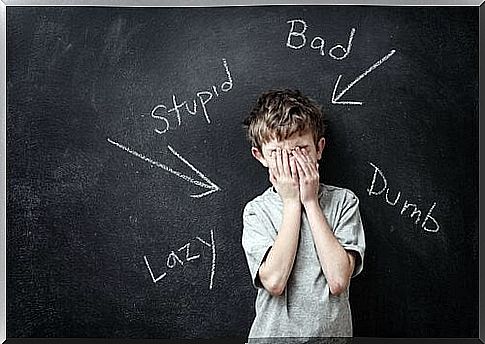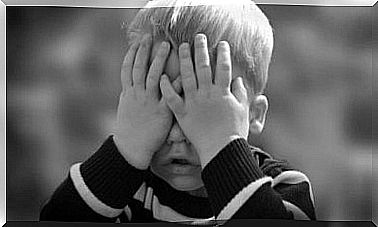How The Family Influences The Formation Of Self-esteem – Being Parents

The family is the first nucleus to which everyone is exposed. As such, it plays a major role in the development of the capacities, faculties and perceptions of the child.
In this case, we will analyze how it influences the formation of self-esteem. The latter is nothing other than the image we have of ourselves.
As a concept of self, self esteem refers to the evaluation of someone by him or herself. It is built on several aspects. Among them stand out the person’s own assessment and the verdict he receives from others.
It is therefore on this last point that the family acquires central importance. Indeed, the family represents the first feedback that the child receives from his qualities and actions. (At least until school begins.) Therefore, the latter will largely determine his vision.
Because of this, the family can encourage or harm a child’s self-esteem. And this, even with small gestures or comments that may go unnoticed. Indeed, parents and siblings will influence the formation of the child’s self-esteem.
However, they won’t do it in its entirety. It is a statement that we prefer to avoid in the psychological field.
The central factors of children’s self-esteem
There are three aspects that we can consider as the axes of the formation of the self-esteem of the little ones. The physical appearance, behavior and academic or athletic performance. Parents should therefore be extremely careful when dealing with these issues with their children.
You can also employ some healthy practices. For example, avoiding comparisons with other children. Or, they teach that the appearance is not the most important thing a person has to show others. You can also show them the benefits of good behavior.
Positive practices for the formation of self-esteem
In order to enable the healthy development of self-esteem in children, there are a few recommendations that every family should keep in mind:
-
Transmit trust and affection
A child who feels loved and valued will no doubt reflect this in his self-esteem. In addition, it is important that you give him the belief in what he can achieve. If you prevent her from undertaking an activity because “it won’t be possible”, you do nothing more than limit her confidence.
On the contrary, what should be instilled in him is the value of work. This means that, with effort and dedication, goals can be achieved.
These must be achievable in the short term to maintain enthusiasm. But also, in the long term, so that he learns the importance of perseverance.

-
Let them try and fail if necessary
Children who do nothing themselves end up with self-esteem issues. As we mentioned in the previous point. Indeed, the fact of not letting them act, even if they are wrong, implies that we do not believe in them.
So how will the child assess his qualities and abilities if he has been expressed throughout his childhood that he would be unable to do things on his own? This is a clear example of how small everyday actions have consequences in the future if not corrected.
-
Encourage overtaking
Without it becoming a pressure to win or stand out, you have to motivate him to improve. This applies to all areas. For example, educational, sports, human, etc.
It is good for a child to learn from childhood the importance of dedication. Thus, he can be better and progress. Plus, he ‘ll have a great tool for the rest of his life.
-
Listen to their opinion and let them participate
It often happens that the little one is never heard and is never consulted when making decisions. But the latter will be affected in its formation of self-esteem. It is therefore advisable to ask him how he feels. Also ask him what he thinks and what he would like to do each time you have to make a decision.
Likewise, he will have to choose which sport to practice. Or what extra-curricular courses to take and all such decisions. If, on the other hand, this does not happen, be careful! I s is almost impossible for a child who sees that he has no power of decision in his life to have a positive image of himself.
Things to avoid for good self-esteem training
We have mentioned to you, above, aspects to take into account and apply. Now, it is also useful to mention the common mistakes that affect the formation of self-esteem in children. We have listed some of them for you:
- Overprotection. This form of parenting is only a reflection of the parents’ insecurities. It can have consequences such as shyness, addiction, introversion, insecurity and lack of self-confidence, among others.
- Minimize achievements. Yes, value their goals. However, don’t tell them that something “is very easy” when they can’t do it. You will attack their self-esteem either way.
- Solve all their problems. If you do, they won’t develop the ability to overcome difficulties. And what’s worse, they might find themselves unable to overcome any obstacle that gets in their way.

Finally, we must clarify that “determinism” in psychology does not exist. True, all of the above is essential for the formation of self-esteem in children. But there is also the possibility of reversing the situation from the self-assessment of virtues.
And, of course, if this process has solid roots from childhood, it will be much better.









